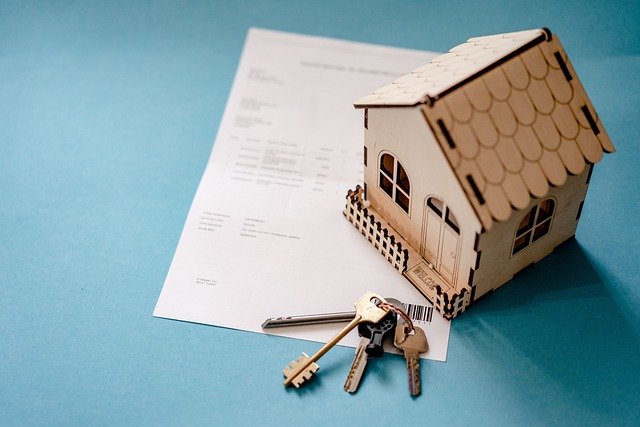Understanding Heart Failure: Causes, Symptoms, and Management
Heart failure is a significant health issue that impacts millions of people around the globe. This condition occurs when the heart is unable to pump blood effectively, leading to a range of health complications. Understanding heart failure is crucial for both patients and healthcare providers, as it allows for better management and improved quality of life. This article delves into the various aspects of heart failure, providing valuable insights into its causes, symptoms, and management.

Heart failure represents a serious medical condition where the heart muscle becomes weakened or stiffened, preventing it from pumping blood efficiently to meet the body’s needs. Despite its name, heart failure doesn’t mean the heart has stopped working completely, but rather that it’s not functioning at optimal capacity. This condition affects approximately 6.2 million adults in the United States and requires ongoing medical management to prevent complications and maintain quality of life.
What Causes Heart Failure to Develop
Several underlying conditions can lead to heart failure development. Coronary artery disease remains the most common cause, occurring when narrowed arteries reduce blood flow to the heart muscle. High blood pressure forces the heart to work harder over time, eventually weakening the muscle. Previous heart attacks can damage heart tissue, creating scar tissue that impairs pumping ability. Other contributing factors include diabetes, obesity, sleep apnea, certain medications, viral infections, and genetic conditions that affect heart structure.
Recognizing Heart Failure Symptoms
Early symptom recognition plays a crucial role in effective management. Common signs include shortness of breath during normal activities or while lying flat, persistent fatigue and weakness, swelling in legs, ankles, or feet, rapid or irregular heartbeat, and reduced ability to exercise. Patients may also experience sudden weight gain from fluid retention, persistent cough producing white or pink-tinged mucus, and difficulty concentrating due to reduced blood flow to the brain.
New Treatment of Heart Failure Options
Modern heart failure treatment has evolved significantly with innovative approaches showing promising results. Newer medications like SGLT2 inhibitors, originally developed for diabetes, now demonstrate effectiveness in heart failure management. Advanced device therapies include cardiac resynchronization therapy and implantable cardioverter defibrillators. Stem cell therapy and gene therapy represent emerging treatment frontiers, though these remain largely experimental. Mechanical circulatory support devices offer options for advanced cases when traditional treatments prove insufficient.
Heart Disease Treatment Approaches
Comprehensive heart disease treatment typically involves multiple strategies working together. Lifestyle modifications form the foundation, including dietary changes, regular exercise programs, smoking cessation, and stress management. Medications may include ACE inhibitors, beta-blockers, diuretics, and newer drug classes targeting specific pathways. Surgical interventions range from bypass surgery to valve repair or replacement. Cardiac rehabilitation programs provide structured support for recovery and long-term management.
Heart Disease Check Up Importance
Regular medical monitoring enables early detection and prevention of heart failure progression. Routine check-ups should include blood pressure measurements, cholesterol level assessments, electrocardiograms, and echocardiograms when indicated. Blood tests can reveal markers of heart stress, kidney function, and other relevant indicators. Healthcare providers may recommend specialized tests like stress testing or cardiac catheterization based on individual risk factors and symptoms. Monitoring becomes especially important for patients with diabetes, high blood pressure, or family history of heart disease.
| Treatment Category | Provider/Service | Cost Estimation |
|---|---|---|
| Initial Consultation | Cardiologist Visit | $300-$500 |
| Diagnostic Testing | Echocardiogram | $1,000-$2,000 |
| Medication Management | Monthly Prescriptions | $50-$300 |
| Cardiac Rehabilitation | 12-Week Program | $3,000-$7,000 |
| Device Therapy | Pacemaker/ICD | $20,000-$50,000 |
Prices, rates, or cost estimates mentioned in this article are based on the latest available information but may change over time. Independent research is advised before making financial decisions.
Successful heart failure management requires a collaborative approach between patients, families, and healthcare teams. While the condition presents serious challenges, many individuals live fulfilling lives with proper treatment and lifestyle adjustments. Staying informed about new treatment developments, maintaining regular medical follow-ups, and adhering to prescribed therapies significantly improve outcomes. Early intervention and consistent management can slow disease progression and help patients maintain independence and quality of life for years to come.
This article is for informational purposes only and should not be considered medical advice. Please consult a qualified healthcare professional for personalized guidance and treatment.




